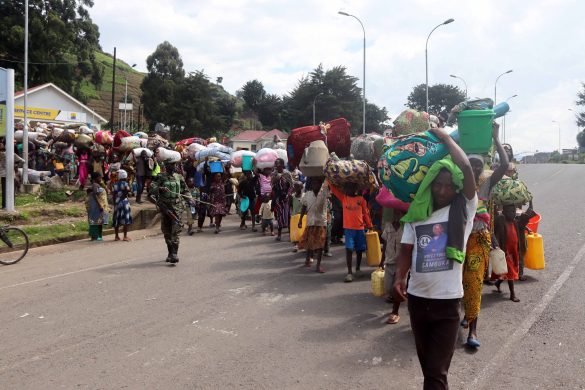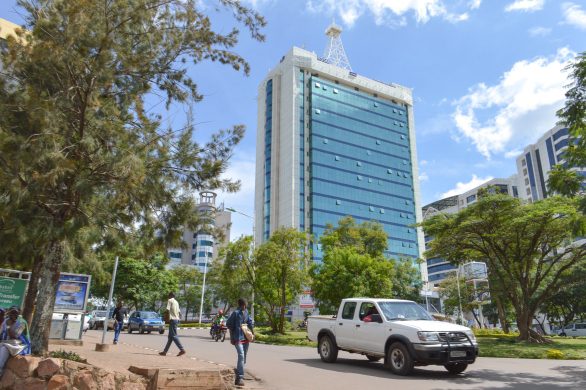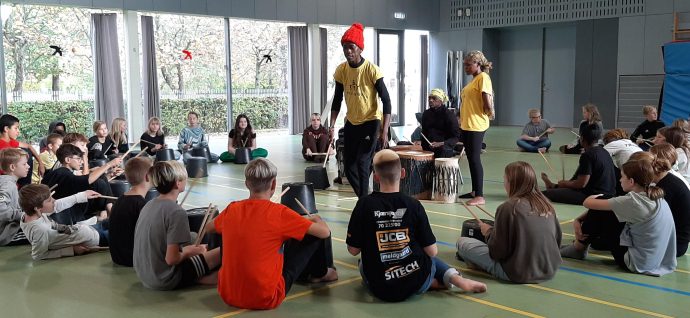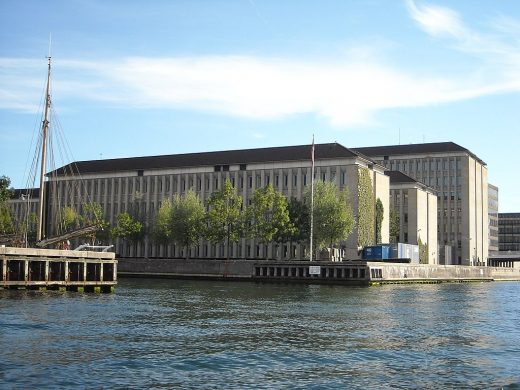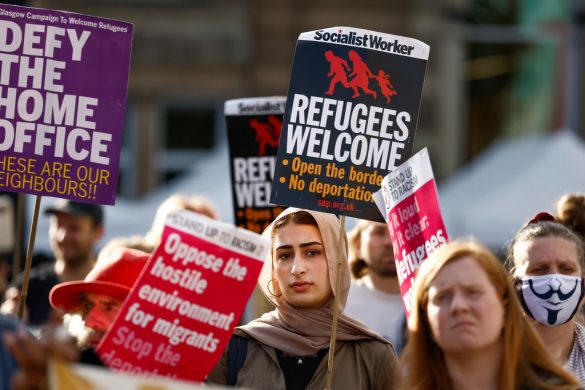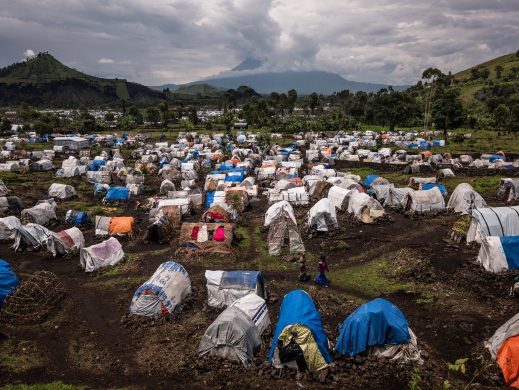Om Vagn Joensen

Dommer i Københavns Byret, 1982.
Dommer i Østre Landsret afbrudt af et år (2001-2002) som dommer ved FN’s midlertidige mission i Kosovo, 1994.
Dommer ved FN’s internationale krigsforbrydertribunal for Rwanda, 2007.
Valgt af sine dommerkolleger til tribunalets præsident, 2012. Har desuden undervist ved universiteterne i København og Aarhus.
Over to årtier efter henved en million mennesker blev hakket til døde med macheter blev der sat punktum.
Det blev den danske dommer Vagn Joensen, der som præsident for tribunalet lukkede og slukkede i det store konferencecenter, som FN har haft lejet til formålet i safari-byen Arusha i Rwandas naboland Tanzania.
“Det er jo en pionerindsats, som vi har gjort,” opsummerer Vagn Joensen på sit panelbeklædte kontor på konferencecentrets fjerde sal overfor Djøf-bladet.
“Udover gennemførelsen af et antal sager har vi jo bidraget til at definere international ret og skabe retspraksis, som er af værdi for retssystemer på både internationalt og nationalt niveau” siger han.
“Var der nu også et folkedrab?”
Inden Vagn Joensen i 2012 blev valgt til præsident, havde han i knap fem år fungeret som dommer og tillige været formand for tribunalets såkaldte regelkomité. Her forsøgte man at sætte fut i det langvarige retsopgør ved løbende at tilpasse reglerne.
“I en retssag om masseforbrydelser er der tit en ramme, som der også skal føres bevis for, hvor den tiltalte så har udført en bestemt rolle inden for den ramme,” påpeger Joensen og forklarer, at man undervejs gjorde det muligt at genbruge faktuelle konklusioner fra tidligere retssager.
Det har haft stor praktisk betydning, for hovedparten af de tiltalte ved FN-tribunalet benægter, at der overhovedet fandt et folkemord sted i Rwanda. De ville gerne bruge både dage og måneder på diskussioner om, hvorvidt der fandt et systematisk forsøg på at udrydde en etnisk befolkningsgruppe sted tilbage i 1994.
“Det har i al fald her på det sidste sparet os for enormt meget tid, at vi ikke hver gang har måttet føre bevis for, at der rent faktisk foregik et folkedrab i Rwanda, og at ofrene primært var tutsier, og derfor kunne koncentrere os om, hvilken rolle den enkelte tiltalte havde i det overordnede hændelsesforløb. Om nogen rolle”, som han sagde i interviewet med Djøfbladet.
Mange blev dømt
FNs Nyhedstjeneste skrive udbyggende om tribunalets formelle lukning med udgangen af 2015:
The United Nations tribunal set up 21 years ago to judge those guilty for the genocide (folkemord) in Rwanda of more than 800,000 people – overwhelmingly Tutsi, and also moderate Hutu, Twa and others – has formally closed.
This comes after delivering 45 judgments as part of the Organization’s efforts to stamp out impunity (straffrihed) for crimes against humanity.
The UN Security Council set up the International Criminal Tribunal for Rwanda (ICTR) on 8 November 1994. It was the first time in history that an international tribunal delivered verdicts against those guilty of committing genocide.
During its two decades of work in Arusha, Tanzania, the ICTR sentenced 61 people to terms of up to life imprisonment for their roles in the massacres which took place over the course of three months of bloodletting by Hutu extremists.
Fourteen accused were acquitted (frikendt) and 10 others referred to national courts.
The indicted included high-ranking military and government officials, politicians, businessmen, as well as religious, militia and media leaders.
“Ubegribelig vold overtog et helt land”
The court noted that “during the 100 bloody days… unimaginable violence overtook the country… a rate of killing four times greater than at the height of the Nazi Holocaust.”
With its sister tribunals like the UN International Criminal Tribunal for the former Yugoslavia (ICTY), the ICTR played a pioneering role in setting up a credible international criminal justice system, producing a substantial body of jurisprudence on genocide, crimes against humanity, war crimes, and individual and superior responsibility.
The ICTR was the first international tribunal to define rape in international criminal law and to recognize rape as a means of perpetrating genocide.
In another landmark, it became the first international tribunal to hold members of the media responsible for broadcasts intended to inflame the public to commit acts of genocide.
Over 3.000 vidner på 5.800 dage
During its two decades, the ICTR held 5,800 days of proceedings, indicted 93 people, issued 55 first-instance and 45 appeal judgements, and heard the “powerful accounts of more than 3,000 witnesses.
They recounted some of the most traumatic events imaginable during ICTR trials,” ICTR President Judge Vagn Joensen told the Council earlier this month.
It became the first international tribunal to issue a judgement against a Head of Government since the Nuremberg and Tokyo Tribunals just after the Second World War, when it condemned former Interim Government Prime Minister Jean Kambanda to life imprisonment in 1998.
A statement by the Council acknowledged “the substantial contribution of the ICTR to the process of national reconciliation and the restoration of peace and security, and to the fight against impunity and the development of international criminal justice, especially in relation to the crime of genocide.”
It stressed that the establishment of the International Residual Mechanism for Criminal Tribunals in 2010 is essential to ensure that the ICTR’s closure does not leave the door open to impunity for the remaining fugitives – se mere på http://unictr.unmict.org
It also called on all States to cooperate with the Mechanism and the Rwandan Government to arrest and prosecute the eight remaining ICTR-indicted fugitives.


